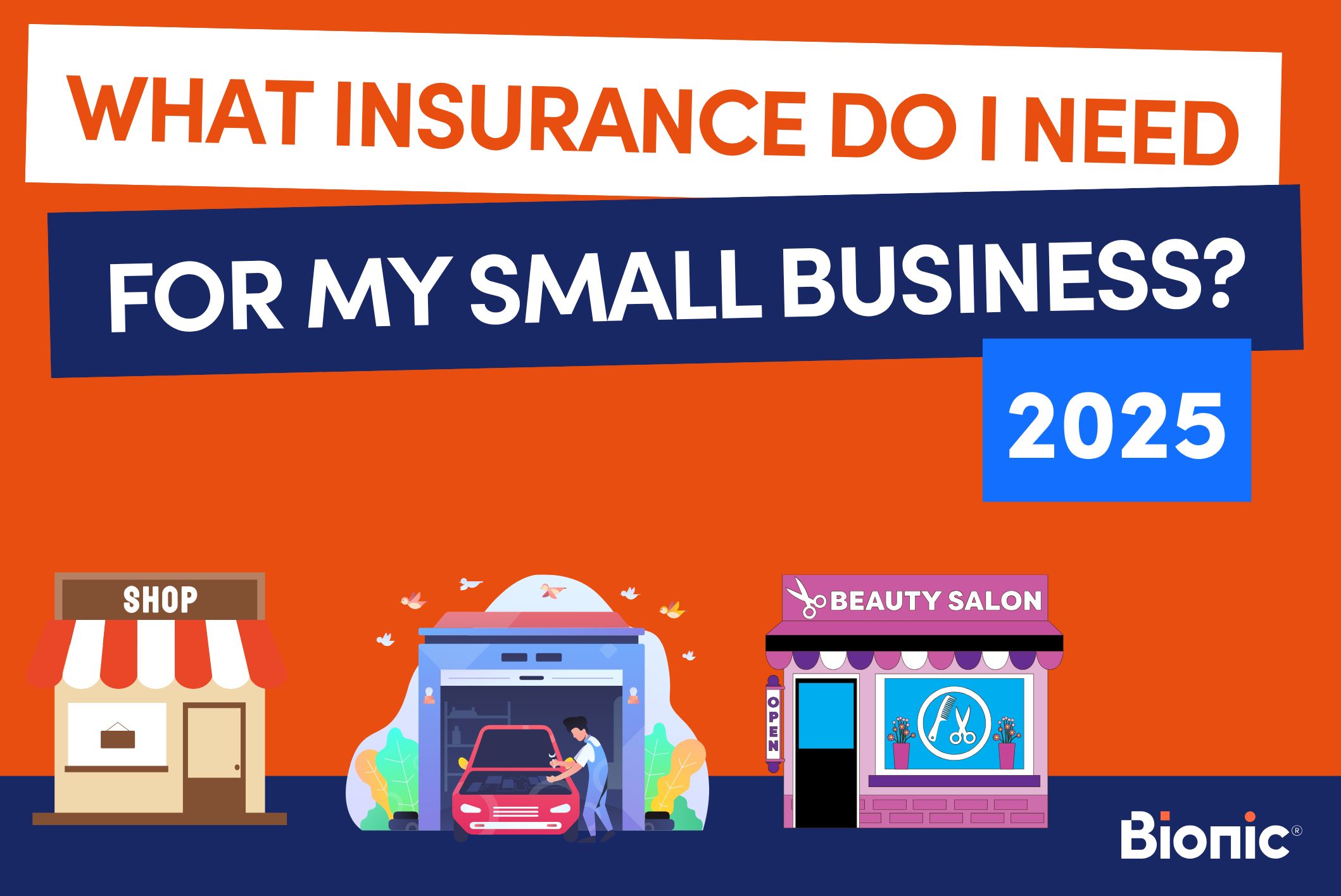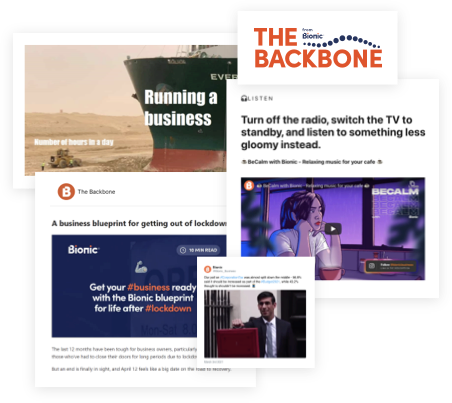* By submitting your details you agree to our terms and conditions and privacy policy . We promise we won’t share your data with others for marketing purposes.
Compare quotes and protect your expensive assets

Protect your tools and equipment from damage and theft

Cover for small businesses relying on vital equipment to operate

Bionic is the comparison site for your small business

We compare a vetted panel of trusted business suppliers
Bionic arranges business insurance for limited companies, sole traders and partnerships
Get tailored cover to protect your wallet against unexpected legal costs or compensation
Only pay for the protection you need—no unnecessary extras
What is...
business equipment insurance?
Imagine getting into work to start your day only to discover that your vital business equipment has been damaged or worse, stolen. Imagine your toolbox is gone, or your specialist equipment has been broken for reasons beyond your control.
If you need your equipment to carry out your work, not being able to use it could mean you can’t trade. This can be a genuine disaster for your business. That’s why it helps to have the right insurance in place.
Business equipment insurance is a type of add-on policy that helps cover your tools, devices and the machinery you rely on to run your business. It could help towards the costs of these essential items if they get stolen or damaged so you can continue to operate as normal.
Who needs business equipment insurance?
Business equipment insurance should be a key consideration for any business that uses valuable tools, machinery, or devices to operate, including:
- Tradespeople - Plumbers, electricians, and builders often rely on expensive tools to complete jobs.
- Freelancers - Photographers, graphic designers, or videographers working with pricey cameras, laptops, or other specialist equipment.
- Shops or Retailers - Shops with essential POS systems and in-store devices.
- Offices - Firms using computers, printers, and other electronic office equipment.
- Mobile businesses - Businesses providing services on the go, like mobile hairdressers or caterers.
We can help insure the majority of small businesses. So if you can’t see your business on the list, it’s likely we still insure your equipment.
What does business equipment insurance cover?
Coverage varies per provider and package. Always check your policy details to see what is covered in your policy. A standard business equipment insurance policy could include:
Accidental damage
This covers paint spills, dents and other unintentional damage to your tools
Theft
Protection against theft on-site or in a place deemed ‘safe’ by your insurer, this will be outlined in your policy
Loss
Protects your valuable tools and equipment against loss

When your business relies on expensive equipment, it’s a good idea to insure it. You never know when it could get damaged, stolen, or need replacing.
James Barwell, Insurance Director
How much does business equipment insurance cost?
How much you pay to insure your equipment will vary depending on several factors unique to your business situation, including:
- Type of equipment – Having high-value or specialist tools often means you’ll pay more for cover.
- Business location - If you’re in an area with high instances of theft it may lead to higher insurance costs.
- How often it’s used – The more often you use your equipment, the greater the risk that it might be damaged.
- Coverage limits – The level of protection you choose may increase costs.
To get an accurate quote for your tools and equipment, start a quote online today. To make sure you get the right level of cover, be ready with details about your equipment and business requirements.
How Bionic business insurance comparison works
Compare insurance quotes in three simple steps
1
Start your quote online
Speed up the process by submitting basic business details online – whenever you have time.
2
Speak to our UK-based team
Schedule a call with one of our insurance brokers to discuss the details to ensure they’re correct.
3
Compare tailored quotes
Get your quotes from our panel of trusted insurers and through any questions with our team.
What do I need to get started?
You only need a few details to get started with getting a business insurance quote online, so it’s best to have the following information ready to go:

Your business name and trade

Your policy start date

Your name and contact details to receive your quote options

You may be asked additional questions about business activities
FAQs
Our team shares essential knowledge on business insurance

What insurance do I need for my small business? 2025 Guidance
Finding the right business insurance shouldn't feel like navigating a maze blindfolded. Yet many small business owners are confused about what they actually need versus what is on offer. We cut through the generic advice to give you answers in our guide.

Why do business insurance premiums increase after making a claim?
Sometimes you have to make a claim on your business insurance, but what happens afterwards? Learn more about the claims process and why premiums can go up in our guide.

Do you need insurance for your side hustle?
We all love to make an extra bit of on the side, but what happens your side hustle goes sideways? If you don't have any business insurance in place, you could end up paying out the cash you've earnt in legal fees or otherwise. Find out what you need to protect your side hustle in this guide.

Business Insurance FAQs: Your most asked questions, answered by our insurance team
Charlie & Les talk through everything you need to know about business insurance cover so you can make an informed decision for your business.
Not your usual boring business content!

Sign-up to The Backbone, our free fortnightly newsletter for anyone who owns, runs, or works in one of the millions of businesses across the UK. Get the inside track from real business owners just like you




